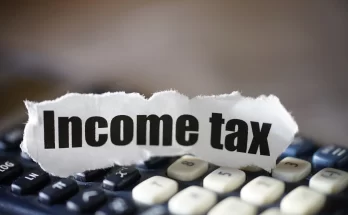Beyond issues surrounding Pay As You Earn, PAYE discussion in South Africa, this article will further examine how employees can compel their employers to comply as enshrined in the laws of the land.
The South African tax system over the years has shown that just like most African nations, it is not immune to peculiarity arising from the deduction of Income Tax particularly based on the Pay As You Earn, PAYE arrangement.
From our research at Taxmonile.Online, it is discovered that the most frustrating part of the problem for South Africa is the area where taxpayers have to deal with not getting credit for the deducted tax sum from their salaries as actioned by their employers.
On the flip side, this challenge most times arises from the failure of the employer in the country to remit these taxes to the South African Revenue Service (Sars), shortchanging its workforce.
Over the years, this issue has brought about the trade of blame between the tax administration and employers of labour. Employers of labour submit that the tax administration must ensure monies deducted from employees’ salaries are remitted while the administration as a pushback wants the employers to be transparent enough in their discussions.
Taxmobile.Online gathered from the submission Carmen Westermeyer, one of South Africa’s top tax scholars that the challenge in the administration of PAYE in South Africa can be categorised into three problems as quoted below:
The problems in the system are; Employers who do not submit the reconciliation of all employees’ earnings (EMP501); Sars not getting proof of payment; or The electronic filing system causes hiccups.
More submissions from Carmen Westermeyer are thus;
If an individual finds [themself] in a situation where [their] employer is bankrupt or insolvent, they should request Sars to issue a bad debt adjustment in their return for the portion of PAYE that was not paid,” says Westermeyer.
If an employer claims to have withheld the tax, but it was never paid to Sars, the individual should consider entering into a compromise with Sars for the short payment of income tax.
There should be some recourse available to the employee to ensure that the employer complies with their obligations,”.
What the Law Says
The law gives very clear responsibilities to different parties involved in the PAYE setting as thus:
- The employer is responsible for deducting and declaring the correct amount of pay-as-you-earn (PAYE) tax from each employee’s remuneration.
- The employer inturns pay this over to Sars every month.
- Submission of the employer’s annual reconciliation documents accurately and timeously, help them to settle their liability.
- The employer in South Africa also must ensure that their employees are tax compliant. This clause is captured on Sars’ website.
- Reconciliations are used to prepopulate auto-assessments and personal income tax returns.
- Non-compliance includes the willful or negligent failure to submit an EMP201 return (monthly), an EMP501 return or IRP5/IT3
- Non-compliance also includes the willful or negligent failure to deliver an income tax certificate (IRP5) to an employee or former employee or deducting or withholding employees’ tax from employees, while wilfully using the money for purposes other than paying it to Sars.
- When an employee does not get credit for the tax that was withheld, the first legal step is to get the employer to submit a correct reconciliation.
- After reconciliation, they show some documentary proof to Sars that the taxpayer has made an effort to get the employer to fix the problem to have their tax return processed.
Administrative penalties
Before highlighting specific penalties, it is important to state that Sars views the non-payment of employee tax as fraud. Below are punitive measures applicable:
- By the books, Sars may levy an administrative penalty if the employer fails to submit a complete reconciliation on time.
- Depending on the number of months outstanding, the penalty is up to 10% of the total employees’ tax liability.
- If the employee’s tax is not paid on or before the due date, employers will be penalised by an amount equal to 10% of the outstanding employee tax amount. In addition, interest will be charged for the period the amount remains unpaid.
Final Thoughts
With a clear knowledge of how the South African PAYE deduction works and a view of some of its shortcomings, there is an urgent need to prioritise taxpayer rights in the country.
In specificity, there should be enablement for employees to sue their employer if they do not meet their obligations and cause hardship for the employee.
It is also time for the administration to consider yielding the calls for amendments to the Tax Administration Act – for a heavier punishment to employers who do not meet obligations concerning their employees.
The above will help boost compliance and improve the system of Income Tax.



